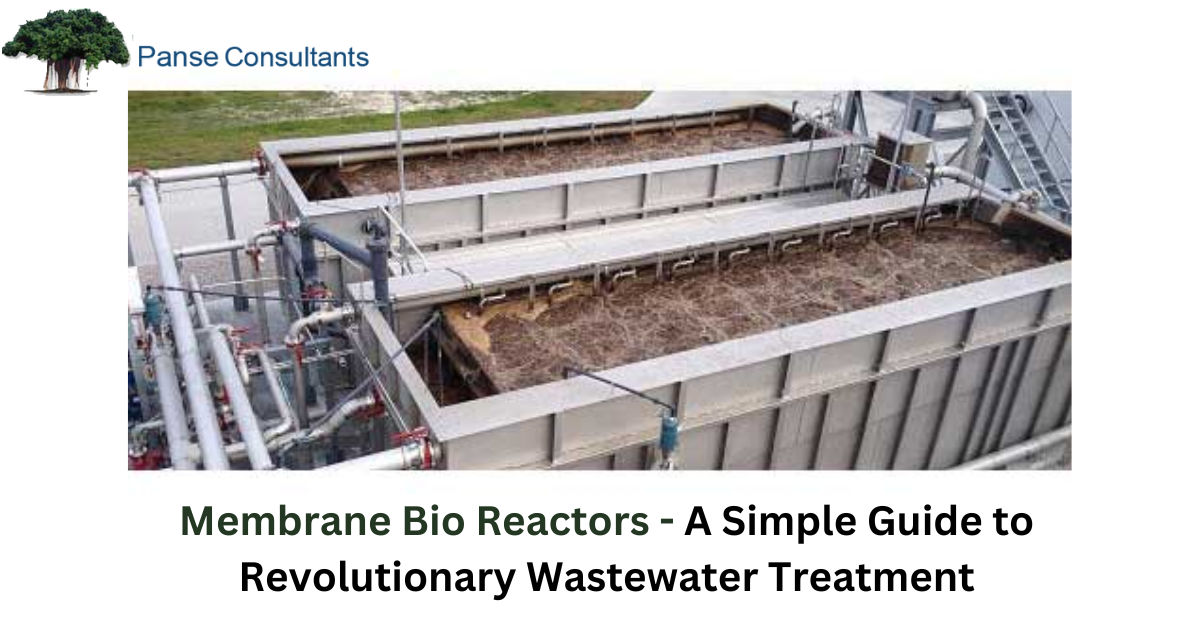
Technological developments are critical to solving the growing problems in wastewater treatment caused by urbanization and industrialization. The Membrane Bio Reactor is one such ground-breaking invention that has become well-known in recent years (MBR). This innovative technique offers an effective and long-lasting approach to wastewater management by fusing the concepts of membrane filtration with conventional biological treatment.
At its core, a Membrane Bio Reactor is an advanced wastewater treatment system that integrates biological processes with membrane filtration. Unlike conventional activated sludge processes, where settling tanks are used to separate solids, MBRs employ ultrafiltration or microfiltration membranes to achieve superior solid-liquid separation.
Bioreactor Tank: The heart of the MBR system lies in the bioreactor tank, where microorganisms break down organic matter in the wastewater. This biological treatment stage is essential for reducing pollutants and promoting water quality.
Membrane Filtration Unit: MBRs utilize either ultrafiltration or microfiltration membranes to separate suspended solids from the treated water. These membranes act as a barrier, allowing only purified water to pass through while retaining contaminants and microorganisms.
Aeration System: Proper aeration is crucial for stimulating the growth of microorganisms in the bioreactor tank. This ensures an optimal environment for the biological treatment process and enhances the overall efficiency of the MBR system.
Read This Blog Also ( https://panseconsultants.co.in/revolutionizing-wastewater-treatment-in-india-with-mbr-membrane-technology )
Compact Footprint: MBRs are known for their compact design, requiring less space compared to traditional wastewater treatment plants. This is particularly beneficial for urban areas where land availability is limited.
High Treatment Efficiency: The membrane filtration process in MBRs produces high-quality effluent with low levels of suspended solids and pathogens. This makes the treated water suitable for reuse in various applications, such as irrigation or industrial processes.
Reduced Sludge Production: The incorporation of membrane filtration minimizes the production of excess sludge, a common by-product in traditional wastewater treatment. This not only reduces disposal costs but also contributes to a more sustainable and eco-friendly approach.
Flexibility and Scalability: MBR systems are highly flexible and can be easily adapted to varying treatment capacities. This scalability makes them suitable for diverse applications, from small-scale decentralized systems to large municipal wastewater treatment plants.
Challenges and Future Developments: While Membrane Bio Reactors have proven to be a game-changer in wastewater treatment, certain challenges such as membrane fouling and high capital costs still exist. Researchers and engineers are actively working on developing innovative solutions to overcome these hurdles, ensuring the continuous improvement and widespread adoption of MBR technology.
As we navigate the evolving landscape of wastewater management, Membrane Bio Reactors stand as a beacon of innovation and efficiency. Their ability to combine biological treatment with membrane filtration not only addresses current challenges but also paves the way for a more sustainable and water-conscious future. With ongoing research and advancements, MBRs are poised to play a pivotal role in shaping the next generation of wastewater treatment technologies Membrane Bio Reactors showcase immense potential in transforming wastewater treatment. Their compact design, high efficiency, and sustainability benefits make them a beacon of innovation. At Panse Consultants, we stay at the forefront of such advancements, ensuring our clients benefit from the latest technologies for effective and eco-friendly solutions in wastewater management."